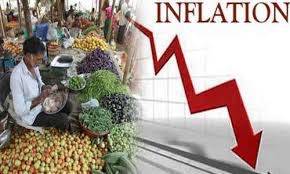A marginal increase in the inflation rate, from 42.5% to 43.1%, may appear insignificant on the surface. However, its consequences reverberate throughout different sectors of the economy, impacting both essential and luxurious goods. The effects of this increase extend beyond influencing consumers' daily lives, affecting businesses and the overall economic growth.
The rising inflation rate presents challenges on multiple fronts. As the cost of living escalates, families find it increasingly difficult to afford basic necessities such as food, shelter, and healthcare. This puts a strain on their everyday lives and may lead to compromised well-being. Moreover, the burden of higher input costs weighs heavily on businesses. They are left with the choice of either reducing their profit margins or passing on the additional expenses to consumers through price hikes. Either way, this cycle of economic uncertainty contributes to reduced consumer spending, which can potentially lead to economic slowdowns.
In order to combat these inflationary pressures, the government and central bank officials must intensify their efforts. This could involve implementing a combination of monetary policies, fiscal interventions, and measures to enhance productivity and supply chain efficiencies. By adjusting interest rates, controlling the money supply, and managing government spending, the central bank aims to stabilize prices and curb inflation. Furthermore, fiscal interventions such as taxation reforms and subsidies may be employed to alleviate the burden on both businesses and consumers. Additionally, investing in enhancing productivity and streamlining supply chains can lead to cost reductions, thus mitigating inflationary pressures.
It is worth noting that these measures require a collaborative approach between the government, central bank, and businesses. Cooperation among these entities is essential to effectively address the challenges posed by rising inflation. By adopting comprehensive strategies that encompass a range of policies, interventions, and efficiency improvements, they can work towards stabilizing prices and ensuring sustainable economic growth.
In conclusion, although a marginal increase in the inflation rate may seem insignificant, its consequences are far-reaching and impact various sectors. The rising cost of living places strain on families, while businesses face difficulties in managing higher input costs. To address these challenges, governments and central banks must implement a range of policies and interventions. By working together, they can alleviate the burden on consumers, stabilize prices, and drive sustainable economic growth.



No comments yet
Be the first to share your thoughts!